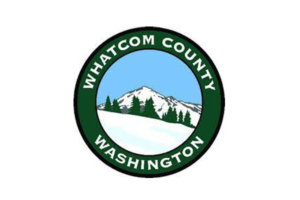Over the past several years, scholars in planning and public health have increasingly called attention to inequities in the food system. One recent article that caused us to reflect on our practice here at New Venture Advisors is “Planning for Regional Food Equity” published January 2021 in the Journal of the American Planning Association.
The researchers conducted a comparative evaluation of regional plans that address dimensions of food equity. The assessment included comprehensive plans, development plans, sustainability plans, and transportation plans.
They specifically looked at “how the plans address the nutritional adequacy of food; affordability and cultural preferences of food for all people; and social equity, spatial equity, and people’s agency in the food system.”
Not surprisingly, they found that regional plans lack attention to the affordability of food and social equity in the food system. Although sustainability plans had more language about social equity, most other regional plans lacked food equity language in the vision/values, in the data collected, and in the monitoring/evaluation sections of the plan.
While the audience for this article is primarily planning professionals working on larger regional plans (that include housing, transportation, economic development, etc.), we think there are important lessons for us to apply as we work with clients to create food system plans. Here are a few of our takeaways:
1. Food plans are a critical addition to community planning.
Most communities undertake regional plans like the ones the authors reviewed, but some communities now recognize that food system issues and solutions deserve a separate focus. There are lots of ways to achieve food system planning.
At New Venture Advisors, we’ve worked on both food plans that become chapters of more extensive regional plans, and ones that have become standalone food plans. However you do it, though, this article reminded us of how important it is for communities to do the intentional work of planning for food system development—because your other regional plans clearly aren’t cutting it!
2. Planners should support social equity and people’s agency in the food system by improving how community plans are written.
First, ensure that individuals/organizations representing racial/ethnic/social minority groups are involved in the planning process. The authors state that planning for food equity “must propel cities and regions towards conditions where the marginalized lead fuller, richer lives, not only as beneficiaries of the food system but as those who articulate its problems and define its solutions” (Raja et al., 2017, p. 309).
New Venture Advisors is in the process of refining community engagement processes to be more inclusive and representative. This has been hard work. We’ve pushed clients to re-think their board structures, to work harder to engage marginalized groups, and to build new partnerships in their communities. We’re always looking for new tools for this work, especially tools to engage marginalized communities in a virtual setting. We’d love to hear from you if you have ideas to share!
3. Plans need empirical evidence concerning food equity.
The study’s authors point out that regional plans need to focus on data on social equity and food affordability. Basically, we need better data to form the basis for decision-making in our food systems.
Here at New Venture Advisors, we’ve been digging into the food system assessment data we provide to communities to ensure that the data isn’t obscuring food system inequities. We’ve really leaned on the Michigan State University Center for Regional Food Systems report, Measuring Racial Equity in the Food System. The report highlights established and suggested metrics that researchers can use to disaggregate data—by race, for example—shedding light on systemic oppression.
So, if you’re considering a community food system plan, please read this first and then reach out to us. We’re still learning and practicing how to embed food equity and justice into our food system planning process, and we’d love to learn alongside you.
And really, that’s the great thing about community planning processes. At their core, they’re all about relationships and learning together. Yes, in the end, you’ll have a Food System Plan to steer your community’s efforts into the future. But it is also our fervent hope that after working with us, your food system stakeholders will have a better understanding of the intersections of equity, public health, and agriculture, that they will have built stronger relationships with people that aren’t exactly like them, and that we will all be motivated to join the fight for a more just and equitable food future.
Image: melitas/shutterstock



